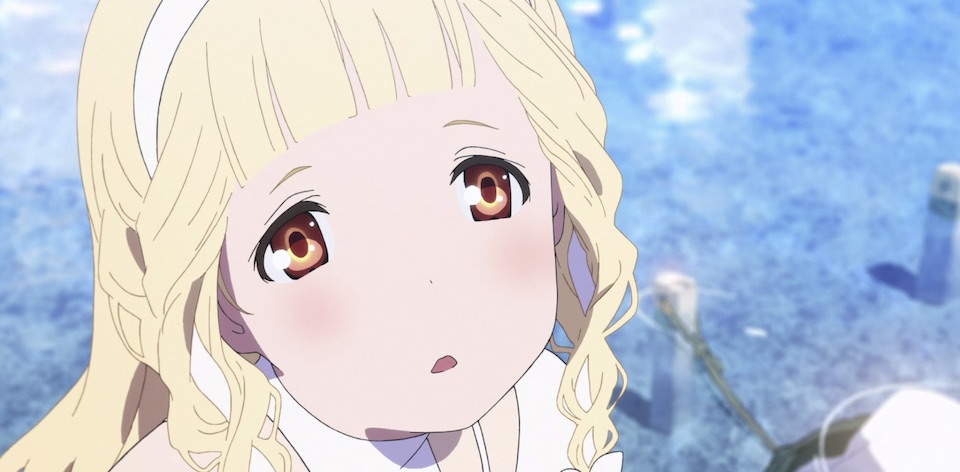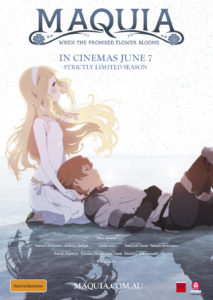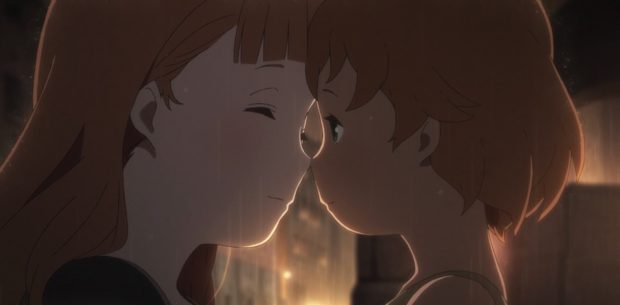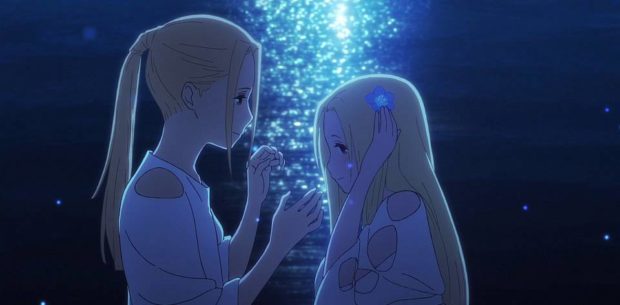The directorial debut from acclaimed screenwriter Mari Okada comes with all the buzz of a Studio Ghibli release. Having previously given the anime loving world Anohana and The Anthem of the Heart, not to mention the live action My Teacher adaptation, here she creates something as timeless as her other works.
Maquia (voiced by Manaka Iwami) is an Iorph from the Clan of the Separated, a group who stop ageing in their mid-teens. They tell their stories to each other through cloth woven in ancient looms. When an army invades, using giant dragon like creatures called Renato, the beautiful Leilia (Ai Kayano) is taken away and Maquia is stranded outside of her world. When Maquia discovers Ariel (Miyu Irino), a baby boy, she makes the decision to raise him as her own, even though she is fated to live an immortal life of loneliness.
MAQUIA: WHEN THE PROMISED FLOWER BLOOMS (さよならの朝に約束の花をかざろう) is first and foremost a film about the way relationships change between parents and their children over time. Maquia’s heritage keeps her ageless while Ariel grows (and grows apart) from his adoptive mother. “I don’t have the right to be a mum,” laments Maquia, and while she is speaking to her particular scenario, she may be talking about any parent who has unexpectedly found themselves in the role of a responsible adult.
The parallel character is Leilia, forcibly married to the Prince, bearing a child that she isn’t allowed to see. Her carefree nature is kept in check by the construct of a world she didn’t grow up in. Okada regularly juxtaposes the two scenarios, seemingly arguing that motherhood is something inherent regardless of the way in which the child came into one’s life. It’s a jarringly quaint sentiment at times, but one that comes from a heartfelt place.
Given Okada’s longevity in the industry, she has assembled an amazing group of talent at P.A. Works to craft a visually stunning feature as well. The fantasy elements are, of course, something to behold. Between the fiery Renato and watery backdrops, the screen is forever alive with animation magic. In the big city, the constant giant clockwork machinations are not only an interesting aesthetic, but a visual and auditory reminder of the passage of time.
For such an intimate story, one that clearly has a personal factor for Okada, there’s an ambitious scope at play. Perhaps it could be argued that the final coda – following a giant battle and the literal birth of a new generation – lingers a little too long on the melancholy. Yet letting go is hard, and rarely has a film so delicately paid tribute to the unconditional turmoil of a mother-son relationship.
[stextbox id=”grey” bgcolor=”F2F2F2″ mleft=”5″ mright=”5″ image=”null”]![]() 2018 | Japan | DIRECTOR: Mari Okada | WRITERS: Mari Okada | CAST: Manaka Iwami, Miyu Irino, Ai Kayano, Yūki Kaji | DISTRIBUTOR: Madman Entertainment (AUS) | RUNNING TIME: 115 minutes | RELEASE DATE: 7 June 2018 (AUS), 20 July 2018 (US)[/stextbox]
2018 | Japan | DIRECTOR: Mari Okada | WRITERS: Mari Okada | CAST: Manaka Iwami, Miyu Irino, Ai Kayano, Yūki Kaji | DISTRIBUTOR: Madman Entertainment (AUS) | RUNNING TIME: 115 minutes | RELEASE DATE: 7 June 2018 (AUS), 20 July 2018 (US)[/stextbox]







